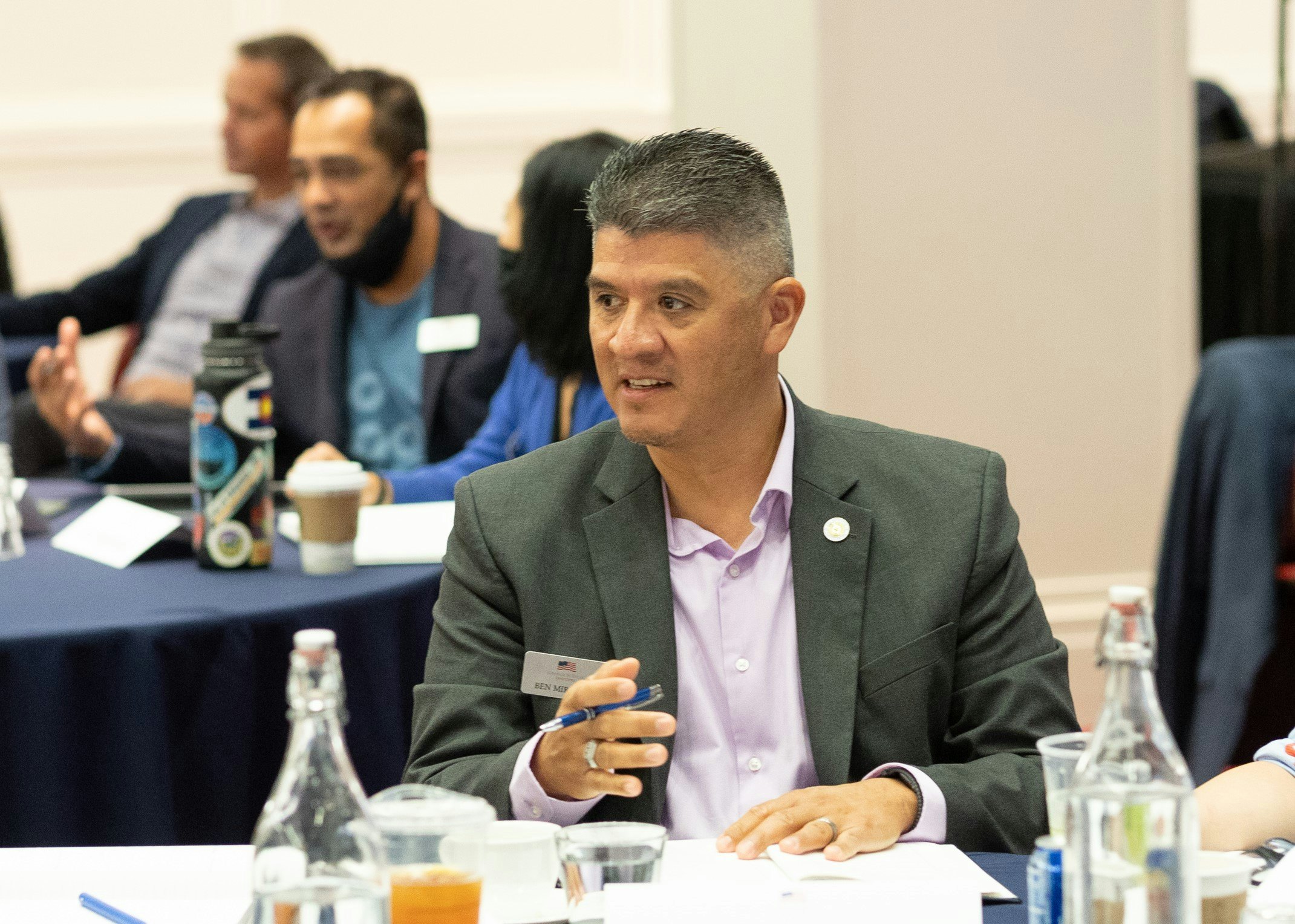Chris Cassidy, retired NASA astronaut, U.S. Navy SEAL, and President of the National Medal of Honor Museum, joined the 2023 Stand-To Veteran Leadership Program Scholars in June for a conversation on his mentors, his time in space, his work at the National Medal of Honor Museum, and more. Read some of the conversation’s highlights below.
Can you share a bit about your leadership approach and the influences throughout your life that helped shape it?
It’s examples that you see, both positive and negative, as you’re coming up and developing yourself as a leader, that affect you most substantially. For me, early in my SEAL team career, I just got to my first unit in the SEAL teams, and I had this amazing senior enlisted chief petty officer who really took me under his wing. And it was his guidance and mentorship that set me up on a path and gave an example of what to do as a leader. And then, sprinkled in, there were examples of, well, instances where I didn’t like how a situation was handled.
And so those examples stay with me, and I remember how I felt when a situation was handled in a certain way. So I’m going to try to either not do that, or at least explain rationally why we’ve got to do those things. Mentorship early in your leadership development is so fundamental and critical.
What values have been most important to you in your career?
At the National Medal of Honor Museum, we talk about courage, sacrifice, and commitment, and the Navy has those same values. For me, personally, those are all true. Transparency is also important to me. I have never enjoyed being in a unit or organization where it feels as if information is held by a few people and others are just spinning on the treadmill and not knowing the big why. And so I think that open, clear, transparent organizations are the healthiest where everybody understands what you’re doing.
What experiences as a Navy SEAL prepared you for your roles at NASA and later leading the National Medal of Honor Museum?
A critical component of leadership is also followership, because there are very few people, if any, that don’t have a boss above them. And that’s one of the things that I learned early on in my Navy career on the SEAL team. Yeah, you have the people who are reporting to you, but equally important is how you communicate and how you represent those people to those above you.
This was reinforced in my time at NASA because, on a space crew, you’ve got the commander of the mission, but that person is not always in charge of everyday activities. Sometimes – if it’s a robotic activity, for example – you might be in charge. If it’s a spacewalking activity, another person is in charge. If it’s a cargo transfer or science experiment, a different person’s in charge. So from day to day on the space station, you have to flow between being in charge and being subordinate and understanding how to do it without ego. You have to naturally flow between being a leader and being a follower.
In your own words, can you talk about the mission of the National Medal of Honor Museum and what you are hoping to accomplish through the platform?
Similar to the Bush Institute, we want to inspire and positively impact people in the country and around the world. Our way of doing that is through the stories of courage and sacrifice of Medal of Honor recipients. So our museum – opening in 2024 – won’t be a place to learn about war or learn about World War II or learn about airplanes. You can go to other museums for that. This will be a museum about individuals who did something amazing when the country needed them to do that. And it will tell the stories of those human beings. Our hope is that those stories in some way connect to our visitors, whether it’s a young kid or an adult who reads, visits, experiences and says, “Oh, wow. That guy played soccer just like I did, or that guy’s from Iowa just like I am.” And look what happened. We’re trying to inspire people through the Medal of Honor.
What do you see as the most pressing issue facing the military-connected community right now?
The most pressing issue that I see is recruiting and really the future force of the military and the broader community. Service is not something that’s often talked about, but there’s a way you can serve the country in lots of different ways. Military is one of them, the State Department, first responders. There’s lots of different ways where you can serve the country. Specifically, to the military, though, the recruiters are struggling to find qualified candidates who want to join the military. There are so many benefits to it. There are education benefits that come out of it. You learn a trade and critical skills; you develop this cohort of friends and this network that sticks with you for the rest of your life and opens doors that would otherwise not be there for you. So I just think that getting the youth of our country excited about service again is something that is critically important.






























